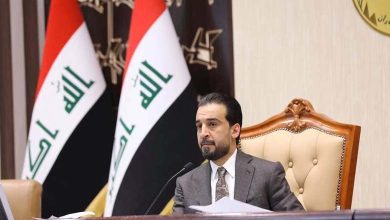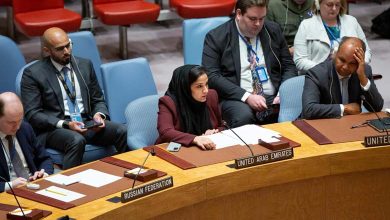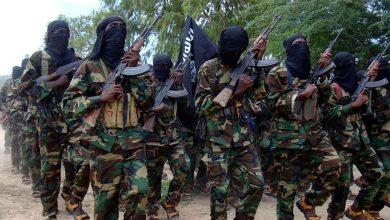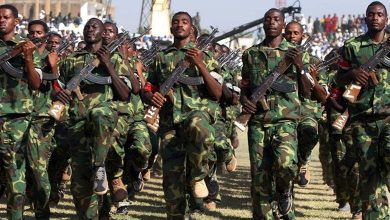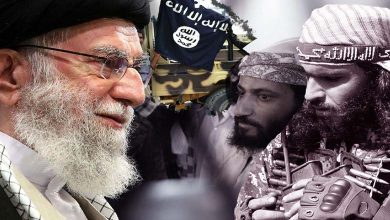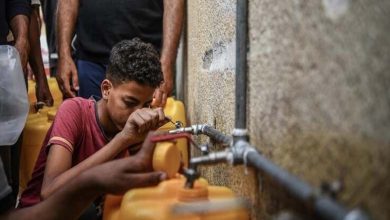Saudi Arabia consolidates its support for the Moroccan Sahara Internally and Externally
Riyadh officially decides to ban the use of the term "Western Sahara" or the dissemination of a divided map of Morocco in all institutions, educational centers, government agencies, and ministries
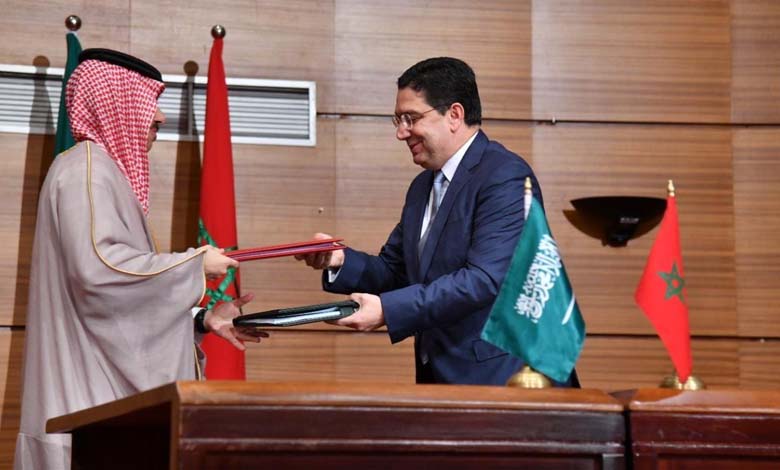
Saudi Arabia has affirmed its full support for Morocco’s sovereignty over its entire territory in a clear and steadfast position without ambiguity on the issue of the Sahara, by issuing a royal decree calling for the ban on the use of the term “Western Sahara” or the dissemination of a divided map of the Kingdom of Morocco in all institutions, educational centers, government agencies, and ministries, with instructions to generalize it to entities under them or related to them.
The head of the Royal Court, Fahd bin Mohammed Al Issa, emphasized in the decision “the necessity for all parties to refrain from using this term or the map of Morocco without its Sahara.” Based on this, the Saudi Ministry of Education issued an “urgent memorandum” inviting all institutions and educational centers to comply with its content.
This Saudi initiative aims to anchor Moroccan rights and Arab support for them in the minds of the new generations in educational institutions, in addition to its diplomatic stance that has not wavered regarding the Moroccan Sahara.
The decision reflects the level of understanding, cooperation, and political solidarity uniting Morocco and Saudi Arabia, which is keen to close the door to any attempt to question its relations with Rabat, and to harmonize with international legitimacy, international law, and the reality, in the face of relentless attempts by enemies of Morocco and its territorial integrity to influence countries supporting its legitimate rights.
In international forums, Saudi Arabia expresses its support for efforts by Morocco to find a realistic political solution to the issue of the Moroccan Sahara based on consensus in accordance with relevant Security Council resolutions and under the supervision of the United Nations Secretary-General, António Guterres. Riyadh confirms its partnership with Morocco and its historical alliance with it due to the strong relations between the two countries and their importance, bringing together several sectors.
This step comes at a time when Moroccan diplomatic efforts continue to find a definitive solution to the issue of the Moroccan Sahara, in accordance with the autonomy proposal presented by Morocco as a realistic and applicable solution.
The decision is in line with Arab consensus among all countries supporting the Kingdom regarding the Sahara issue, as well as the entrenched Gulf position, which is not limited to Saudi Arabia but also includes capitals of Gulf countries that maintain their support for the Moroccan Sahara and Moroccan sovereignty. This term is also used on several occasions in the Security Council or in the Fourth Committee, showing a clear position on territorial integrity.
Saudi Arabia’s Permanent Representative to the United Nations, Abdallah Al-Mouallimi, reaffirmed in a speech on behalf of the Arab group during the general debate of the Fourth Committee at the 76th session of the General Assembly that his country supported “the efforts made by the Kingdom of Morocco to find a realistic political solution to the issue of the Moroccan Sahara based on consensus in accordance with relevant Security Council resolutions and under the supervision of the United Nations Secretary-General, António Guterres.”
Al-Mouallimi also reiterated Saudi Arabia’s support for the autonomy initiative in the Moroccan Sahara within the framework of Morocco’s sovereignty and the unity of its national territory as a solution consistent with international law, the United Nations Charter, and Security Council and General Assembly resolutions. This initiative has been welcomed by the Security Council through resolutions issued since 2007, as well as by Morocco, which welcomed the participation of elected representatives from the Moroccan Sahara in sessions of the Committee of Twenty-Four (C24) and their participation in roundtable discussions in Geneva.
Al-Mouallimi welcomed the holding of roundtable discussions with Moroccan participation, stating that “the sisterly Kingdom of Morocco has contributed to economic and social development in the Moroccan Sahara within the framework of the new development model and has achieved significant progress in the field of human rights. One of the most important steps taken in the Moroccan Sahara is the legislative elections that took place as in the rest of the cities and regions of the Kingdom of Morocco.”
He also reaffirmed Saudi Arabia’s support for efforts by Morocco to reach a solution to this dispute and emphasized the importance of demonstrating wisdom, realism, and a spirit of consensus from all concerned parties, and that resolving this dispute would contribute to achieving security and stability in the Sahel region, also expressing Saudi Arabia’s rejection of any infringement on the supreme interests of the Kingdom of Morocco or its sovereignty or the unity of its national territory.
Saudi Arabia’s position aligns with developments in the Sahara file, especially at the international level, where the UN approach expressed in Security Council resolutions and the Secretary-General’s reports in various documents issued by international bodies, deals with the reality on the ground, which is reflected in Moroccan sovereignty over the Sahara, and therefore consecrates the resolution of the issue in favor of the reality of Moroccan sovereignty and transcends this fabricated dispute.


